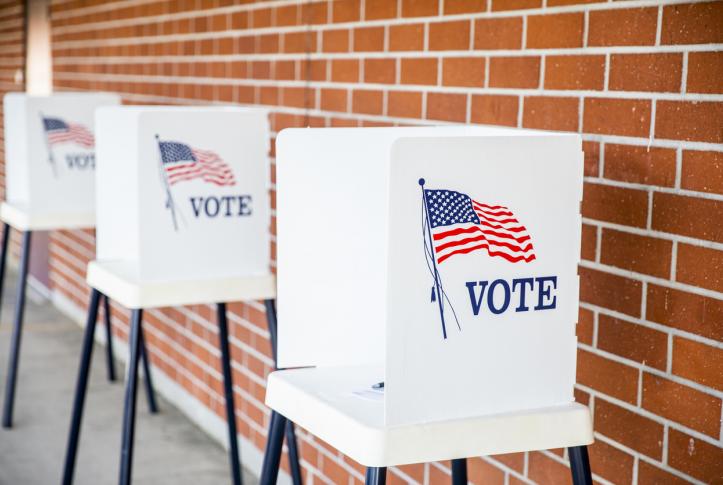As pundits spend the coming days unpacking the implications of last night’s election, one takeaway is already clear. Yesterday’s results, both federal and state, will have important consequences for health care, which was a major campaign issue. About four in 10 Americans turning out to vote across the country chose health care as the most important problem facing the country. More than seven in 10 said the nation’s health care system needs major changes. Given the record numbers of candidates who ran on health care platforms, and with hopes high, what should we expect in 2019?
Congress: ACA Marketplace Stabilization and High Drug Prices
With the House of Representatives now under Democratic control — and with Republicans still short of the 60 votes needed to override a filibuster — efforts to repeal the Affordable Care Act or make large-scale changes to programs like Medicaid are likely off the table, though the administration is expected to continue to pursue actions to undermine key elements of the ACA. What we may see is congressional activity on two fronts: stabilizing the individual health insurance markets and controlling high drug prices. Many congressional Republicans campaigned on support for the ban on denying coverage or charging higher prices based on preexisting conditions. So one bill that may be revived is the Bipartisan Health Care Stabilization Act drafted last year by Senators Lamar Alexander (R–Tenn.) and Patty Murray (D–Wash.). Another possible bipartisan effort would provide ACA marketplace reinsurance options for states to help limit participating insurers’ exposure to very high medical expenses. A bipartisan bill to protect consumers from so-called balance billing by out-of-network providers for private insurers might also gain momentum.
Not all the activity related to the individual health insurance market will be bipartisan. With the flip in leadership, House oversight hearings on the Trump administration’s recent ACA regulations and guidance that could weaken the insurance marketplaces are inevitable. Target areas include the promotion of health plans that don’t comply with the ACA, such as short-term health plans and association health plans, and new 1332 guidance that would allow states to deviate from key ACA provisions without ensuring consumers maintain affordable, comprehensive coverage. The House also may examine the administration’s near-elimination of funding for marketplace outreach and enrollment assistance.
While congressional action to lower drug prices has been marginal leading up to the election, interest could intensify now. House Democrats are likely to hold hearings that highlight their preferred approaches, such as allowing Medicare to negotiate prices with drug manufacturers, a popular theme among voters. But as the President takes steps to implement his proposals — including a signature effort to tie some Medicare drug prices to lower ones in other countries — Congress could craft a handful of significant drug market reforms. For example, House Democrats could shape the President’s plan to change how Medicare pays for drugs administered by physicians under Part B through oversight hearings that explore the rationale and options for reform. Congress is also more likely to consider bipartisan reform to Medicare Part D catastrophic coverage for outpatient drugs, particularly as it responds to drug manufacturers’ push for changes to Part D’s “donut hole.” Congress also could act more broadly to lower drug prices for all consumers by banning anticompetitive practices that manufacturers use to delay cheaper generic and biosimilar versions of their drugs from coming to market.
States: Medicaid Expansion and 1332 Waivers
Health care was also front and center in last night’s state elections, where the outcomes of voter initiatives and a handful of governor’s races increase the likelihood of Medicaid expansion. Voters in three conservative states, Nebraska, Idaho, and Utah, approved Medicaid expansion. In Montana, the ballot initiative to continue the expansion scheduled to sunset at the end of 2019 was unsuccessful, leaving the coverage for thousands of residents uncertain.
The outcome of governor’s races in several states will likely also play a significant role the future of Medicaid expansion. In Maine, the winning Democrat, Janet Mills, has pledged to honor the Medicaid expansion ballot initiative blocked by the current governor. Democrat Laura Kelly defeated Kris Kobach in Kansas, significantly improving the state’s odds for expanding Medicaid, although the expansion will also rest on the makeup of the state legislature. Michigan’s governor-elect, Gretchen Whitmer, could take steps to reject a waiver to add work requirements submitted under Governor Rick Snyder. In Wisconsin, winner Tony Evers unseated incumbent Scott Walker. Evers ran on a platform of expanding Medicaid and could put a halt to the recently approved work requirement waiver submitted by Governor Walker.
Medicaid expansion suffered likely setbacks as well. In Ohio, Republican Mike DeWine defeated Richard Cordray for governor. Though outgoing Republican Governor John Kasich was a champion of Medicaid expansion, DeWine campaigned on opposition to the state’s Medicaid expansion. As with other states, Ohio’s legislature will also play a critical role.
Changes in state leadership also will help determine the future of ACA insurance markets. States have considerable authority over their individual markets and 28 states have taken actions to strengthen their markets, such as implementing reinsurance programs or rules that ban or limit non-ACA-compliant short-term health plans and association health plans. The new governors, including some Republicans, may take similar actions to protect their individual and small-group markets. But other Republican-led states may take advantage of the Trump administration’s new 1332 guidance to increase access to non-ACA-compliant plans, including permitting the use of federal subsidies to buy them.
The Courts: Medicaid Work Requirements and the ACA
The fate of work requirements in Medicaid, and the ACA itself, also may be decided in the courts. After a federal district court judge overturned U.S. Health and Human Services (HHS) Secretary Alex Azar’s approval of Kentucky’s waiver, Azar reposted Kentucky’s application and held a 30-day public comment period in which more than 11,000 comments were filed. The administration is expected to issue a new determination on Kentucky’s application, after which the matter will likely return to court. Meanwhile, the National Health Law Program, Legal Aid of Arkansas, and the Southern Poverty Law Center filed a new lawsuit challenging HHS’s approval of Arkansas’s Medicaid work requirement. Oral arguments on the case will take place by the end of the year.
A second key court decision also could dramatically alter the post-election storyline. A verdict is expected any day on a lawsuit brought by Republican governors and attorneys general in 20 states claiming that Congress’s repeal of the individual mandate last year invalidates the rest of the ACA. The U.S. Department of Justice has agreed with the plaintiff states in part, and refused to defend the law’s preexisting condition protections. Should the states win, an estimated 17 million people could become uninsured. Senate Republicans have introduced a bill they say would fix this problem, but while it requires plans to offer coverage to people with preexisting conditions, it likely would do little to stem the damage as it would allow insurers to exclude coverage of preexisting conditions. The case could ultimately arrive at the Supreme Court, giving the ACA a third hearing before a court with two new justices.








